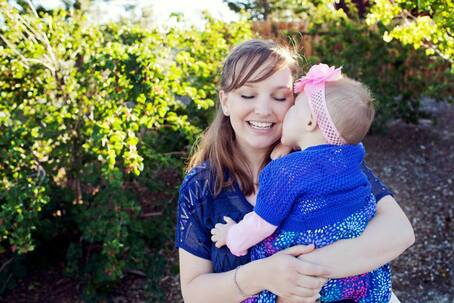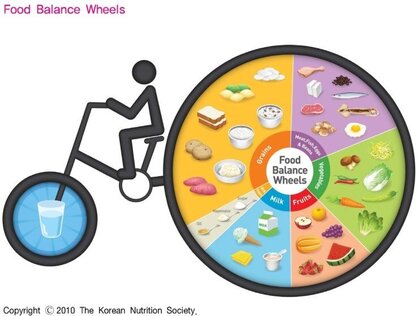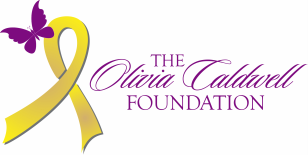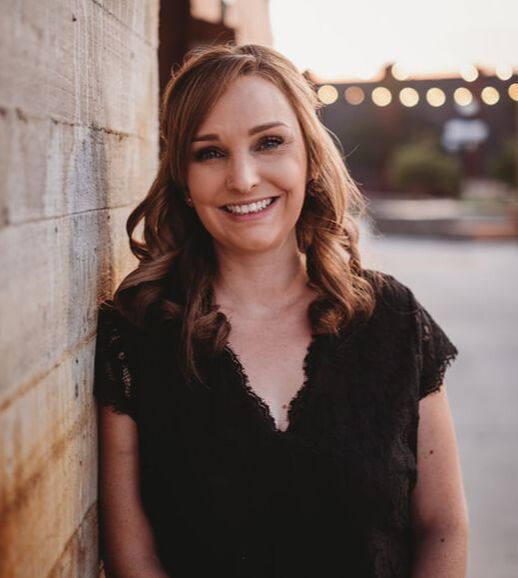 I have a love-hate relationship with Springtime. I love the increased sunshine and daylight hours and the first promises that summer is on the horizon. I hate it though when the weather changes on a dime and we are suddenly freezing cold under piles of snow after a few days of warmth and sunshine. The ups and downs can seriously mess with my mental well being! This Spring has been extra hard and it has only just begun. The month of March has been filled with a lot of disappointment, loss, and countless things going horribly wrong that I have no control over. It’s been really difficult and I’ve struggled with the fact that I am anything but okay right now. In the past when life was really hard I would slap on a fake smile and overcompensate by throwing myself into something (a project, holiday preparation, etc) to try and distract myself from really feeling the emotions and the heartbreak. I would wear that fake smile like a badge of honor, willing myself to just be okay. But I wasn’t okay then and I’m really not okay now either. But that is okay too! What I’ve learned through all of these years and all the hard roads I’ve had to walk in my nearly 35 years of life is that it is actually more than okay to not be okay sometimes. That was a lesson I had to learn the hard way when I finally began to process the loss of my daughter and other really difficult life circumstances many years ago. It wasn’t until I was very near a mental breakdown before I began to bask in the freedom of that knowledge, but thankfully it isn’t a lesson I have forgotten just yet. I could beat myself up for struggling right now. I could slap on that fake smile and pretend that all is wonderful right now, but I know that is not what is best for me both now or in the future. So instead I am taking my old lessons and doing what I need to do to deal with this season now. If this is you and this season is really hard, acknowledge how you are feeling and the why behind it. Cry if you need to, but let it out! When you don’t and you hold onto something and bury it deep inside is when you finally reach a point of explosion. And those explosions can be much harder to come back from. When I am in a season of grief or heartbreak I have learned to stop and spend some time with it. I do some soul searching and understand where the sadness is coming from. And then I let it out. I pray. I journal. I cry. I share my feelings with some treasured people, and I just rest. And you know what? Nine times out of 10 I wake up stronger and less consumed by grief the next day. I’ve managed my grief and my feelings instead of letting them handle me. It doesn’t mean all the sadness is gone after one day, and sometimes it’s a process that lasts a few weeks or even a month, but I know if I stick with it, over time I will find my joy and my peace again. Yes, I have suffered a lot of loss in my life. And yes, right now I have stressors coming at me from just about every direction. But I am going to lift my eyes and look up, count my blessings, and work on getting a real smile on my face. And you, my friend, can do the same, even if it feels impossible right now.
Categories All
0 Comments
 I’m going to preface this by saying I am not a tax expert and you should always talk to your tax professional for clarification and advice. Now, having said that, I do want to add some credibility to why I’m writing on this topic. I have been involved with nonprofit organizations for a combined six years and I truly believe that nonprofits are the backbone of this world and have an impact that can’t be matched. I am also a business owner and know the importance of tax write-offs to help my one-woman show come tax time. Nonprofits like the Olivia Caldwell Foundation rely on grants and donations from generous individuals, businesses and foundations. The beauty of getting to partner with people whose values align with the work we do at OCF, is that the relationship is mutually beneficial. Donors get to be a part of a movement that combines the good of a community to make a greater impact than any one individual can do alone. The nonprofit is therefore able to work on fulfilling their mission with a team of passionate supporters on their side. Whether you choose to make a large donation at the end of the year to help your bottom line on taxes or you prefer the consistency of an automatic monthly contribution- donors are putting their hard earned money back into causes that they care about. When it comes to tax deductible giving to a nonprofit organization there are a few things to take into consideration.
As a business owner, donating either goods, services or money to nonprofit organizations helps in so many ways. Here’s a few:
Talk with your tax professional before you submit your taxes this year and see how your donations from the previous year can be used and make sure to come up with a plan for giving in 2022 to take advantage of the tax benefits. Resources from Tax Deductible Donations: Rules of Giving to Charity - NerdWallet
 If you have a child with a chronic illness or medically complex condition, you may find that your child’s care goes well beyond the usual visits to the doctors office. And if you live in rural Wyoming and have specialty care needs, that means you get to travel for that care. So when it’s all said and done, your kiddo with those extra medical needs and care will have a larger team on his or her side. That can be a little overwhelming, so I’d like to take this chance to share some good news about one person who will likely be a part of your child’s care team. In honor of National Social Workers month this March, social workers are our spotlight team members! The Social Worker The clinical social worker employed by a hospital can be such an important piece of your care. Sometimes we may have this idea that a social worker is scary and only shows up when our kids are taken away for some sort of neglect or abuse, but actually they are there to really care for you and your child! Let me share some of the great ways these folks can help you take the next steps in your child’s medical journey. 1) Counseling As a licensed clinical social worker (LCSW), these are professional counselors, trained in various ways to help you and your child process through a particular struggle in life. That could be the news of a diagnosis, grief from loss, trauma from an accident and more. They can help you, individually and as a family begin the process of understanding what you have experienced and share how you can overcome it. They can help answer questions about a treatment process or what can be expected with a certain diagnosis in a language that you and your child can understand, especially those who work in pediatric-specific areas. This is such an awesome and important opportunity for your family to strengthen your hearts and minds as you move forward with whatever the future holds. 2) Insurance Gurus Whether it was an accident, a premature birth, or a chronic illness that has been in the cards for a while now, as adults we always want our children to have the best care - and be able to afford it. That “and” can be a pretty big hurdle to overcome. Social workers are well versed with insurance company’s policies and they can help you work through how that “and” can be a possibility. They can also help find other support that you need from organizations that have funds to cover specific things. It’s not easy to ask for help, especially financially. And if we want to help care for our children today, we need to take steps to make sure that we can also take care of them tomorrow. Social workers are great at helping you see the path to do that. 3) Going Home Social workers are a big part of the process to get your family home in a way that will help you succeed. If there are barriers in care or equipment, they can help make sure you have what you need to keep your child on the right track. That can be anything from oxygen to walkers! They can also help to make sure your child’s follow up care is mapped out. They can also help you get connected to other resources at home. Partners We are grateful for the whole team that cares for our Wyoming children! In the Patient Advocacy Program, I get to work alongside social workers and those within their team to be able to help connect families to some of those local resources and support services that they need. I like being able to encourage our families to reach out to their social worker when their child has an appointment with their specialist when I know of needs they can support. Yes, part of the social workers job is to ensure that our children are safe. And a big part of how they ensure that is happening is by caring for us - parents - while we take care of them! Be sure to take advantage of this important person on your care team, as you walk with your child through their medical journey! If you have any questions, please don’t hesitate to ask - you can reach me at (307) 333-1273 or [email protected]
Categories All  Nutrition. The huge elephant in the room that nobody wants to discuss when really it needs to be. I know, I know. Another article on why we need to eat our fruits and vegetables, drink water and get the right amount of protein. Trust me, if cake and diet soda were in the nutritional wheel as a staple, I would be the first in line to be healthy. Unfortunately, it does not work that way. In order to live a healthy, long life, we really do need to make sure our nutrition is somewhat on point. March is National Nutrition Month! So what better time than to go over some key factors as to why our nutrition is SO important. Nutrition can vary from person to person because of age, health status, schedule and other defining factors. It is always a good idea to consult your health care provider before starting any special nutrition plan. Not all nutritional eating plans work for everyone. We all know the basics of the nutrition wheel. Vegetables, fruits, whole grains, dairy, and proteins. But we don’t always know why we need to follow these recommendations. Proper nutrition can lead to healthier lifestyles all across the board. Nutrition is medicine. No, it can’t solve every issue, but it can resolve symptoms a huge percentage of chronic illnesses people experience. Nearly half of all Americans have at least one chronic illness. For people with chronic diseases, healthy eating can help manage these conditions and prevent complications. Good nutrition is the key to good mental and physical health. Eating a balanced diet is an important part of good health for everyone. The kind and amount of food you eat affects the way you feel and how your body works. People with healthy eating patterns live longer and are at lower risk for serious health problems such as heart disease, type 2 diabetes, and obesity. Allowing yourself to fuel your body with the right nutrients can help improve your ability to fight the common cold or nasty virus that is circulating around. Being properly fueled can help you recover from injury as well. You may not think that proper nutrition helps with mental health, but studies show that it in fact plays a huge role. You could find yourself having more energy, and in better moods. A healthy diet promotes a healthy gut, which communicates with the brain through what is known as the gut-brain axis. Microbes in the gut produce neurotransmitters like serotonin and dopamine, which regulate our mood and emotions, and the gut microbiome has been implicated in mental health outcomes. Studies have even found that healthy diets can help with symptoms of depression and anxiety. Here are 10 small ways you can improve your nutrition.
If you are looking for more information on proper nutrition check out any of the following websites: the American Heart Association, American Cancer Society and the American Diabetes Association.
Categories All |
AuthorWrite something about yourself. No need to be fancy, just an overview. Archives
December 2022
Categories
All
|





 RSS Feed
RSS Feed



